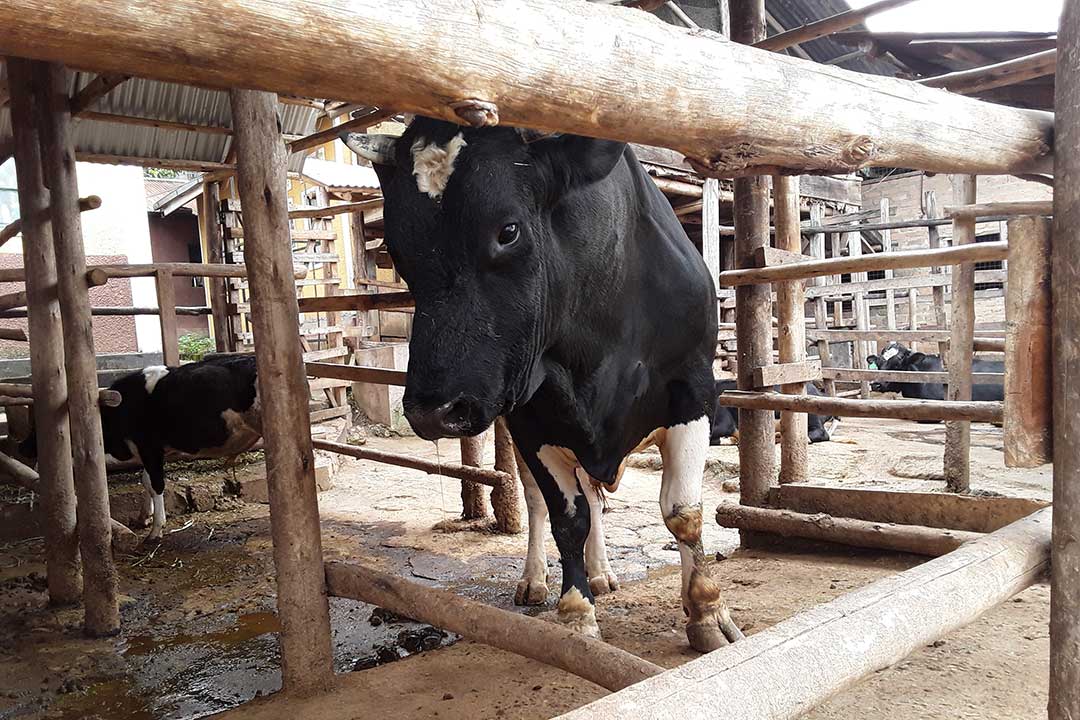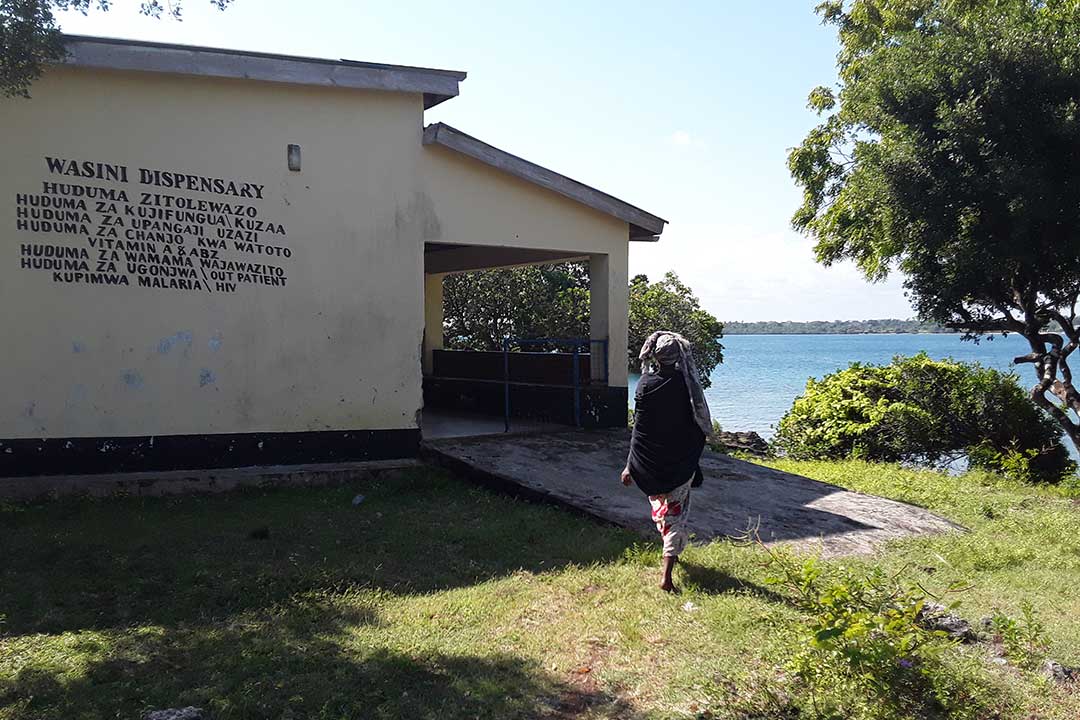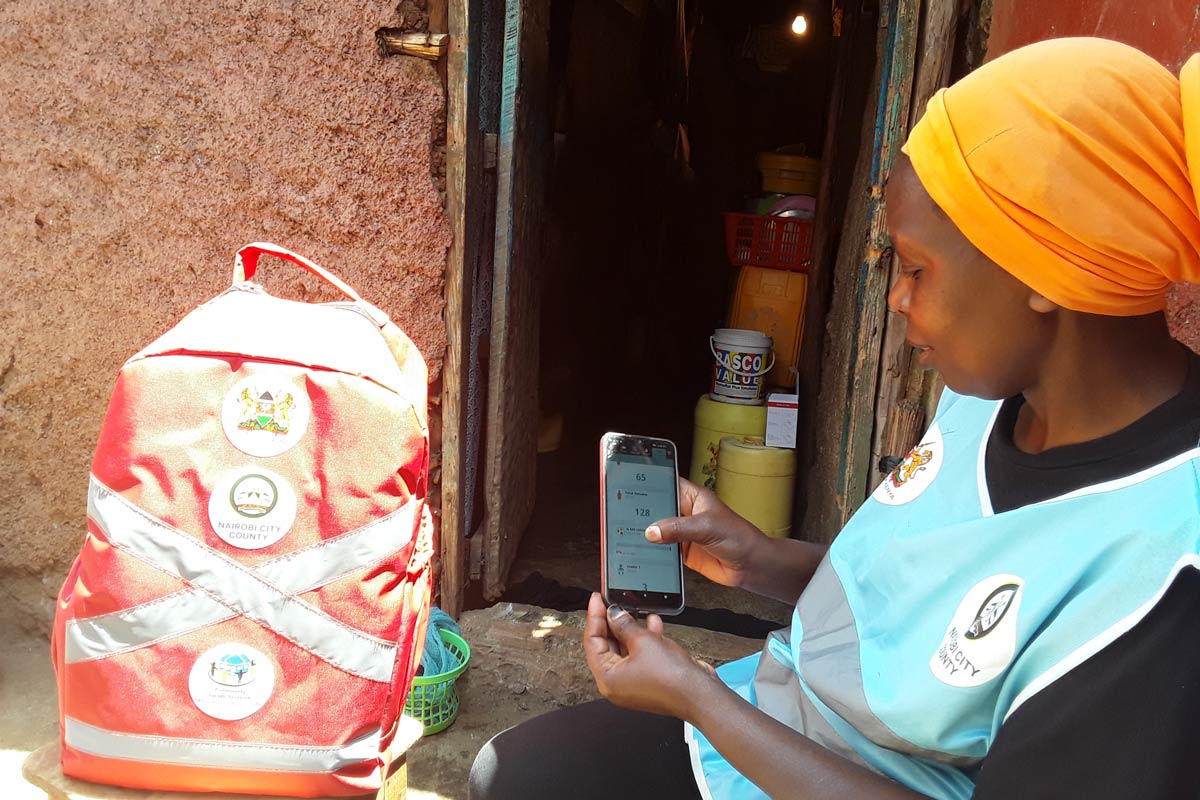How a tiny dispensary in Kenya is turning the tide against cervical cancer
It was always going to be hard to spur HPV vaccine uptake in Tamlega, an isolated, conservative village with an unimpressive record on vaccination. But the three-person staff of the tiny local dispensary has driven a hope-inspiring turnaround.
- 3 October 2025
- 6 min read
- by Joyce Chimbi
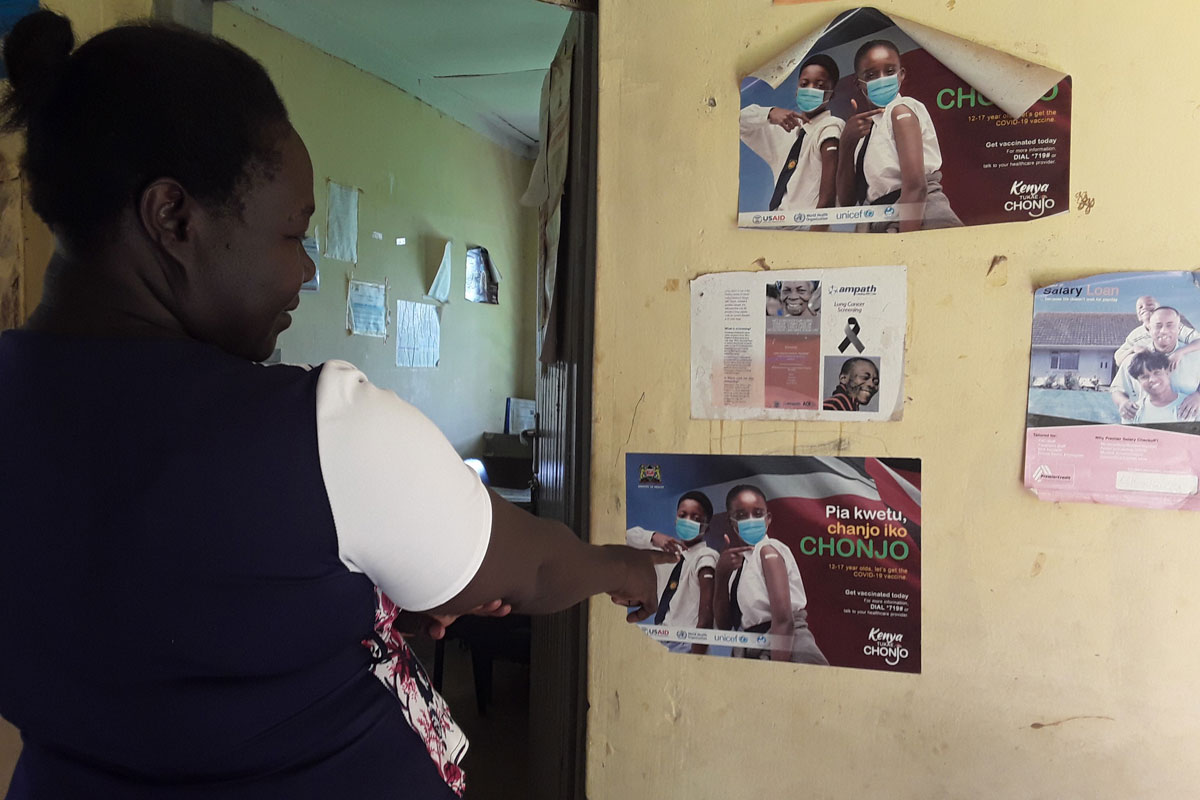
In 2019, the first year that Tamlega Dispensary in western Kenya’s Bungoma County stocked the human papillomavirus (HPV) vaccine, just 72 adolescent girls received it, meaning just 72 girls received the lifelong protection against cervical cancer that the vaccine offers.
In those early days, the small community health centre struggled to increase HPV uptake in conservative, isolated Tamlega ‘B’ village. Cultural and religious beliefs against interventions linked to sex, and suspicions against a vaccine that only targeted adolescent girls, stirred swirling currents of misinformation. Vaccine hesitancy grew; HPV vaccine coverage rates in Western Kenya fell short.
But meanwhile, as Bungoma County health records attest, local women continued to be diagnosed with cervical cancer – and diagnosed late. In February 2022, 335 women tested positive for cervical cancer out of 14,635 women screened at the facility. With approximately 421,553 women of reproductive health age in the county, they had only scratched the surface.
Hilkka Kitui, a nursing officer at Tamlega Dispensary, recalls a sense of mounting urgency. The health facility needed to find “ways to overcome various complex barriers standing in the way of HPV vaccination,” she said, “and help the community raise a new generation of women fully protected from cervical cancer.”
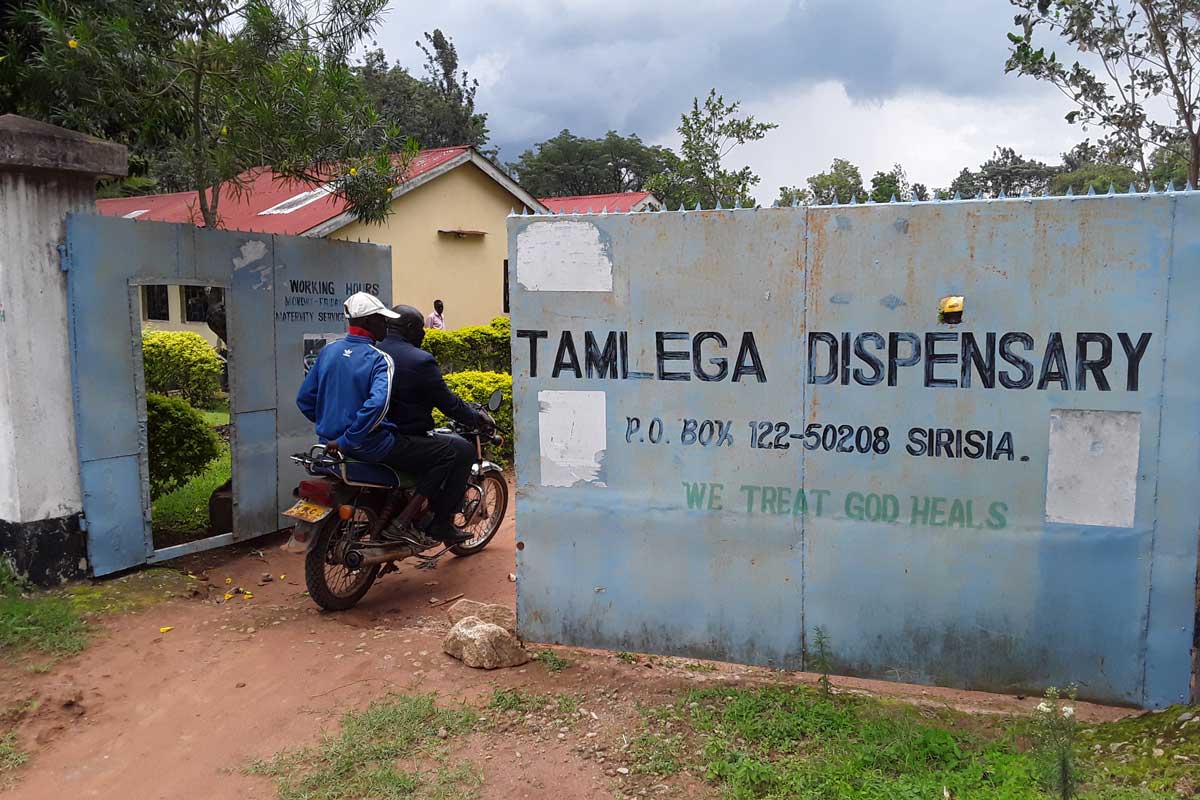
A difficult spot
As almost all cervical cancers are linked to HPV infection, the HPV vaccines is capable of heading off as many as 90% of cases of the cancer.
Kenya has an estimated 16.8 million women aged 15 years and older. At any given time, 9.1% of women in the general population are estimated to harbour cervical HPV-16/18, the two highest-risk strains of HPV. Nationwide, more than 5,000 women are diagnosed with cervical cancer each year, and about 3,200 of them are expected to die.
Despite those alarming statistics, Nekesa Wafula, an official with the Bungoma County Government says rolling out the HPV vaccine here was always going to be challenging. “Bungoma is one of 14 counties that are collectively home to half of Kenya’s zero-dose children,” she said, referring to children who have never received a single dose of vaccine. “Sirisia Sub-county, where Tamlega Dispensary is located, is one of two sub-counties out of the nine sub-counties that make up Bungoma County, that have traditionally reported low routine child immunisation rates.”
Kitui explains that an interplay of geographical challenges and pervasive social, cultural and religious beliefs provide fertile ground for vaccine hesitancy.
The dispensary is located at the foothills of Mount Elgon, a topographically challenging terrain. Standing at Tamlega, the Musikoma and Sang’alo hills interrupt the view.
Moreover, Tamlega ‘B’ village meanwhile, is less than an hour on rocky tracks, by slow-going motorbike from Uganda. Like many border towns, the village is relatively under-provisioned. Risper Wanjala, a resident, says, “There is no public transportation in Tamlega ‘B’ village and surrounding areas.”
Wanjala says even boda bodas – motorbike taxis, always the public transport fallback in rural Kenya – are hard to come by, and costly for the peasant farming community. When it rains, travel becomes even more difficult: untarred, muddy roads grow slick and sticky.
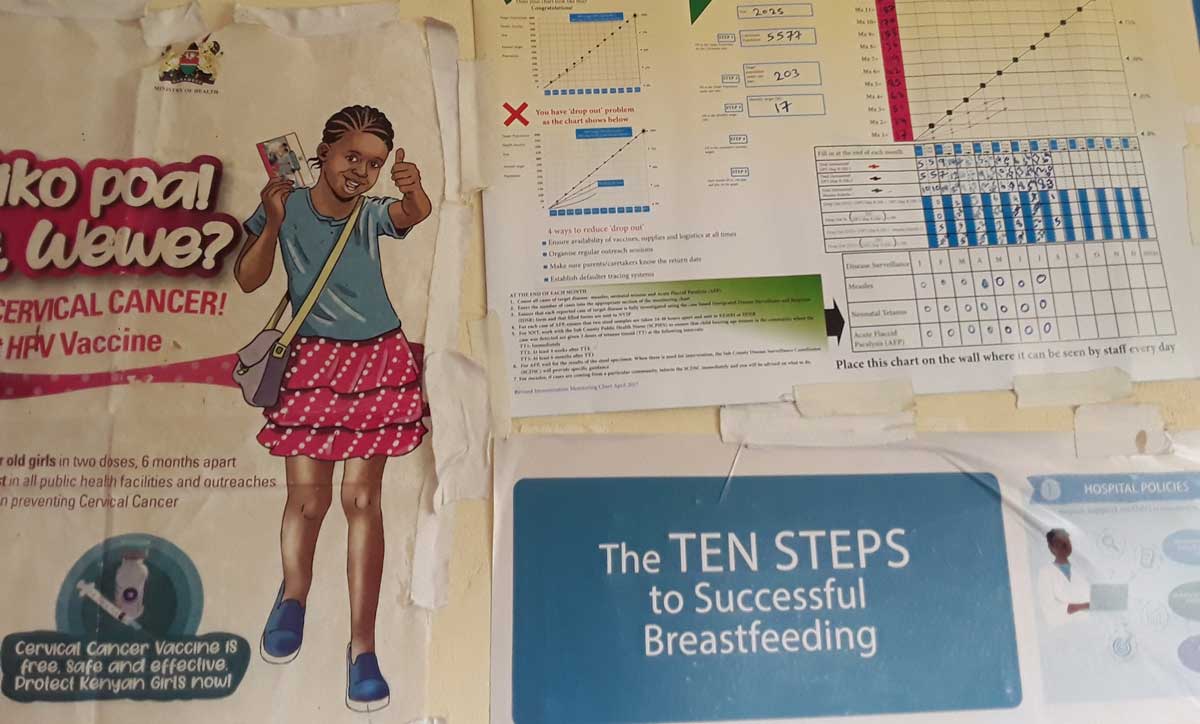
Hyper-local alliance networks
The dispensary itself is isolated, tucked inside the village and away from the main roads. Although it is a well-maintained permanent structure, it is small, with three tiny rooms and three full-time staff to serve a catchment population of more than 19,000 people.
“Homes are sparsely distributed, making it difficult for the community to come to the facility, and tedious and time-consuming for us to do outreach health activities,” explains Kitui. “We had to find a way to reach the community with the HPV vaccine.”
What that meant in practice was getting proactive. Instead of waiting for the lone parent or guardian to find their way into the dispensary with their adolescent girl, dispensary staff decided to take the vaccine into the community.
Wafula says this strategy “was informed by Bungoma County’s research into the effectiveness of community involvement and engagement in the implementation of the HPV vaccine programme.”
In 2023, Tamlega dispensary began to work with the village units – the smallest administrative structure in the county’s governance system – to help educate the community about cervical cancer. Simultaneously, they mapped out all the primary schools in the area for direct engagement.
“People trust their village units, as they are constituted of their religious leaders, village elders, relatives, teachers and, in general, people who are highly trusted and respected by the community,” says Fred Wanyonyi, a member of one Bungoma village unit.
Have you read?
Bring schools into the programme
With help from the Ministries of Health and Education, in early 2023, Tamlega Dispensary made a transformative move, linking up with six local primary schools.
“Schools usually send word through area chiefs, village elders and village units of intended HPV vaccinations [on campus],” explained primary school teacher Mark Simiyu, who is also the parent of an adolescent girl. “Eligible pupils are given a letter by their school to take home to their parents or guardians, seeking approval. Teachers are the biggest champions of the HPV vaccines, encouraging, educating and reassuring their pupils.”
The dispensary dispatched mobile vaccination teams – a nurse and record officer – to set up temporary HPV vaccination sites at those primary schools, and relied on community health volunteers, teachers and village units to raise awareness.
Vaccination rates leapt. Tamlega records show that since that since then, an average of 28 girls are vaccinated at each of the six schools every six months. HPV is also provided on demand every day at the dispensary and is part of routine immunisation.
Kitui says, “Each school has an HPV vaccination register and all eligible girls are [given an opportunity to take their first or second dose of the vaccine] twice a year. The data manager records contact information, including their villages, for follow-up, in case the family moves, or in case they transition to secondary school before receiving the second dose.”
“We have very traditional and highly conservative villages in neighbouring Teso North villages and the Mt. Elgon areas. It is taboo to openly speak about sexuality or reproductive health, but we are making inroads in those areas as Tamlega dispensary is closer to them than some of the health facilities in their sub-counties,” says Nasimiyu Khisa.
HPV vaccination isn’t the only part of the multi-pronged effort to combat cervical cancer in Bungoma County that is making headway. Bungoma County now ranks first in the Lake Region Economic Bloc, comprised of 14 counties, for cervical cancer screening. It’s also one of only two sites for a pilot initiative known as the Women’s Integrated Cancer Services, launched in October 2024 by the Ministry of Health with support from the World Health Organization and Roche, with the aim of improving access to breast and cervical cancer screening and treatment for women in Kenya.
